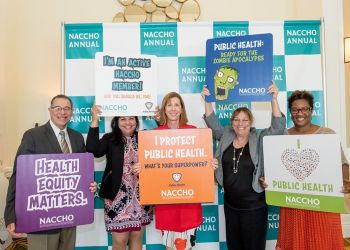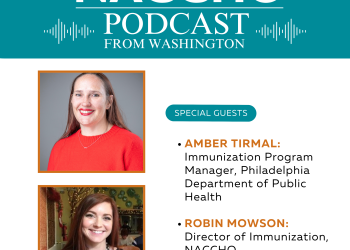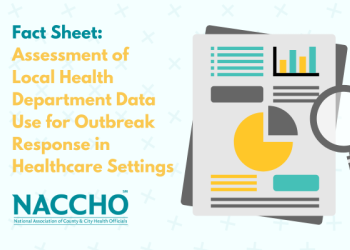 The Scholarship of Public Health is a blog series from the Journal of Public Health Management & Practice that addresses topics relevant to scientific publishing, dissemination of evidence and best practices, and the education of current and future professionals.
The Scholarship of Public Health is a blog series from the Journal of Public Health Management & Practice that addresses topics relevant to scientific publishing, dissemination of evidence and best practices, and the education of current and future professionals.
As soon as I entered academia, one of the most common questions I received from students was some variation of, “What is the best way to make myself more competitive for a job when I graduate?” To me, there are many answers one can give, and each of them is necessary but not sufficient. One that I most commonly hear is to network, but networking is like marketing, and it’s fruitless to market an inferior product (ask the marketers of “New Coke”). This is not to say that networking, and building contacts, is not necessary, but it’s not sufficient. To me, the answer to the question of marketability is deceivingly simple but often overlooked: demonstrable skills. Both words are important. “Skills” reflects the ability to do something useful, and “demonstrable” represents the fact that they can be observed, most often in the form of a product.
Legendary UCLA basketball coach John Wooden is credited with one of my favorite quotes of all time: “Never mistake activity for achievement.”
I like this quote so much, I added it to my email signature rotation years ago, in hopes that one of my students would read it and take it to heart. To me, it gets at the core of what so many students and professionals get wrong in their quest for gainful employment. Specifically, that staying busy and working hard is sufficient for success. Make no mistake, working hard is necessary, but you need to spend your time as a student, trainee, or young professional gaining skills and applying them in a manner that produces more than a line on your resume or curriculum vitae. One of the most often heard complaints from employers is that recent graduates lack the skills for the jobs they’ve been hired to do. According to employers, these recent graduates are plenty smart, and very knowledgeable, but they often cannot apply their knowledge and intelligence to anything useful. Some of this is the fault of faculty, many of whom have not worked in the public health practice community themselves, or those who lobby to teach survey courses or advanced content classes on the topics they research. The desire of faculty to teach these classes is understandable since the faculty have areas of academic interest, and offering a course in these areas is a great way to get students excited about the topic. Unfortunately, these classes tend to be heavy on conceptualization and light on application, compared to an advanced methods course, and these classes are often much more interesting than methods to the average student. As such, many elective hours are dedicated to advanced content classes, resulting in students who are really good at thinking about things, but not so good at doing things. As such, even the students who acquire skills don’t have much to show for them. So what is the solution? Never take a class on a topic you like? Get rid of all majors but biostatistics? Not exactly.
My advice for the typical graduate student is twofold. First, don’t take more than one class in a specific content area. Instead, write a white paper, a systematic review, or a meta-analysis to learn content in an area of interest. The former could be useful for a nonprofit, non-governmental organization, or state/federal health agency. The latter two can be published. Both of those options would give a potential employer evidence of your skills and knowledge. Avoiding a second (or third) content class would allow time to take a skills-based course, like advanced evaluation, advanced statistics, epidemiology methods, grant writing, data management, survey design, scale development, geographic information systems, or policy analysis. Second, don’t put off choosing a practicum site, and strongly consider doing a formal or informal directed research project in addition to your practicum. Not all practica are created equal, and starting the planning process early can mean the difference between having something to show for your efforts (eg, that white paper I mentioned), or doing a lot of shadowing/filing. A directed research experience can be invaluable in honing evaluation skills, data entry and management, or quantitative and/or qualitative analyses skills. It can also lead to writing skills and scientific publications. Scientific publications are an excellent demonstration of what you can do, even if you plan on a career in public health practice.
One of the sobering truths of public health is that most everyone who graduates from an undergraduate or master’s program in public health will apply for jobs with a degree and a good grade point average (thanks to grade inflation). If you want to stand out in that stack of resumes, you should have tangible products you can point to that show that you have valuable skills to bring to an employer. To produce those tangible products, you need skills. To get skills, you have to do things. Much like someone wanting to be a blacksmith back in the day had to apprentice, you will need to seek instruction (formal or otherwise), and opportunities to apply those skills to hone them, since skills, like steel, don’t get sharper by simply thinking about them.
You can find more blog posts like this on the Journal of Public Health Management and Practice’s website.
Justin B. Moore, PhD, MS is the Associate Editor of the Journal of Public Health Management and Practice and an Associate Professor in the Department of Family & Community Medicine of the Wake Forest School of Medicine at the Wake Forest Baptist Medical Center in Winston-Salem, NC, USA. Follow him at Twitter and Instagram. [Full Bio]





